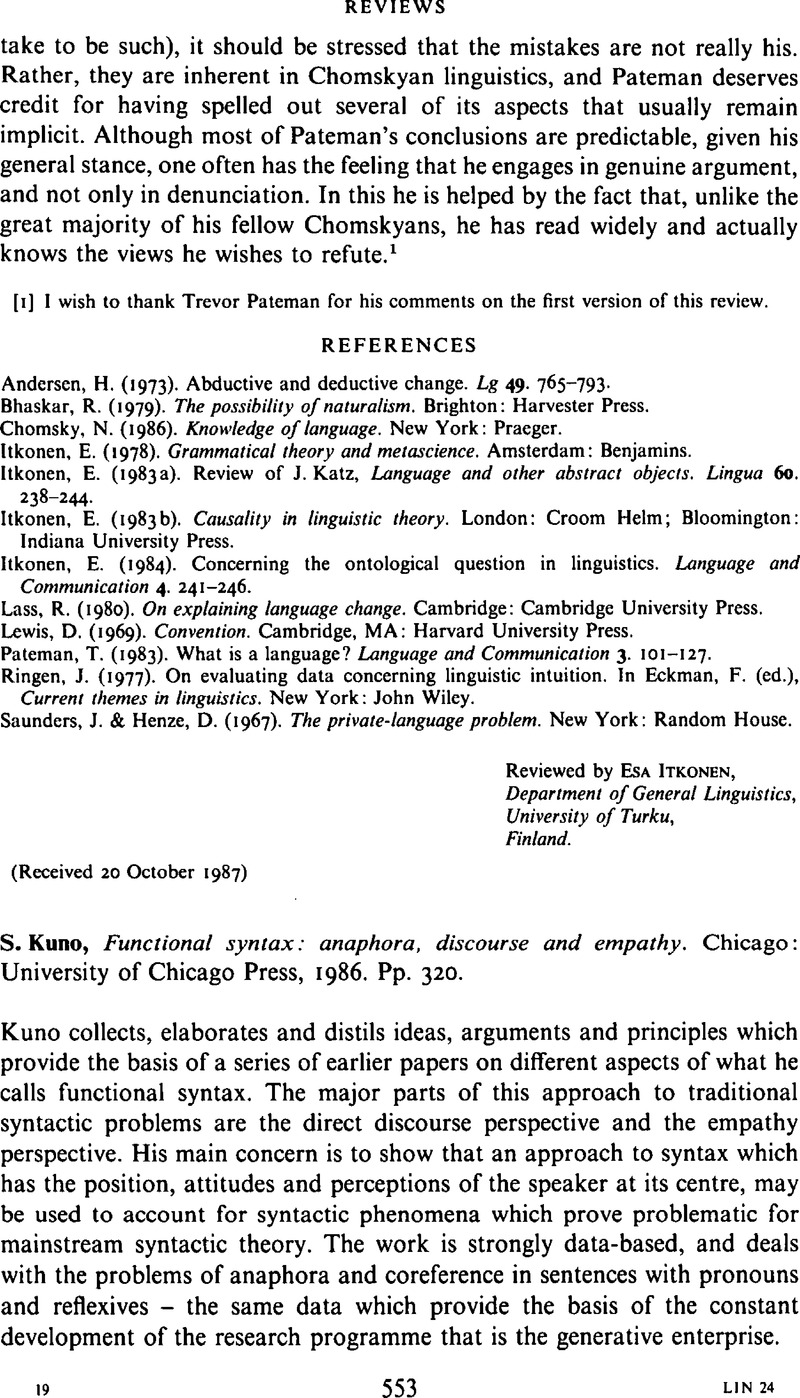No CrossRef data available.
Article contents
S. Kuno, Functional syntax: anaphora, discourse and empathy. Chicago: University of Chicago Press, 1986. Pp. 320
Review products
S. Kuno, Functional syntax: anaphora, discourse and empathy. Chicago: University of Chicago Press, 1986. Pp. 320
Published online by Cambridge University Press: 28 November 2008
Abstract
An abstract is not available for this content so a preview has been provided. Please use the Get access link above for information on how to access this content.

- Type
- Reviews
- Information
- Copyright
- Copyright © Cambridge University Press 1988
References
REFERENCES
Chomsky, N. (1982). Some concepts and consequences of the theory of government and binding. Cambridge, MA: MIT Press.Google Scholar
Haiman, J. (1985). Natural syntax: iconicity and erosion. Cambridge: Cambridge University Press.CrossRefGoogle Scholar
Langacker, R. (1969). On pronominalization and the chain of command. In Reibel, D. A. & Schane, S. A. (eds). Modern studies in English. Englewood Cliffs, NJ: Prentice-Hall. 160–186.Google Scholar
Levinson, S. C. (1987). Pragmatics and the grammar of anaphora. JL 23. 379–434.CrossRefGoogle Scholar


